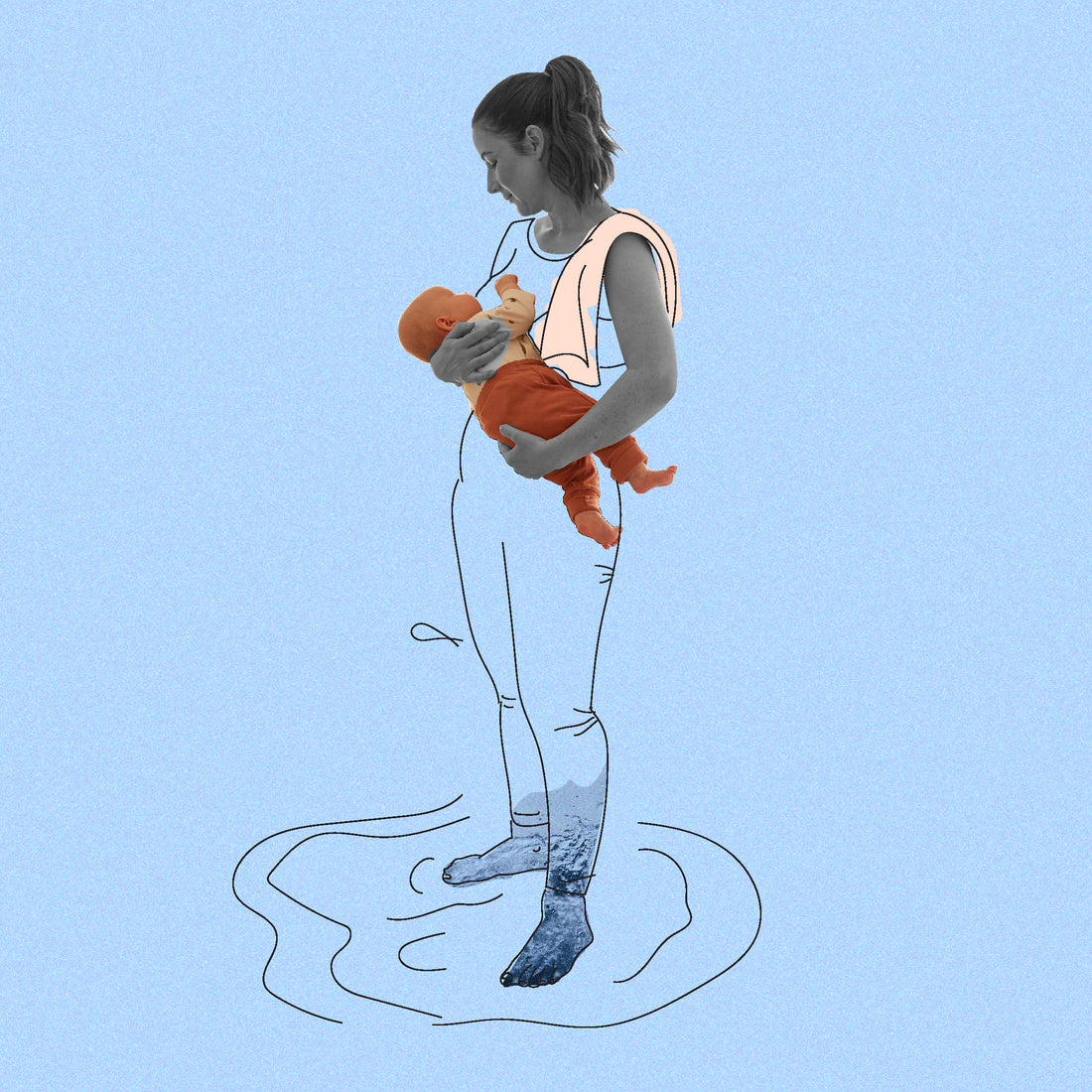Stephanie Slater is the co-founder of Asklé, health-tech startup focused on supporting women. Here Slater shares her own journey of recovery after her postnatal depression diagnosis, the inspiration for launching Asklé.
Motherhood is a journey of love, exhaustion, and resilience. With my third baby’s arrival imminent, I can’t help but feel a little nervous about the postpartum period. Even though I’ve done this twice before, I know how challenging those early months can be.
Six months after the birth of my second child, I was diagnosed with Postnatal Depression (PND). It was a tough pill to swallow—especially for someone with a psychology degree who had taught mental health. How could I be diagnosed with depression? I thought I had my life together. But the reality was, I was struggling.
This post isn’t just about my experience—it’s also about what I learned and the steps I took to heal. If you're in the trenches of postpartum exhaustion or navigating your own mental health journey, I hope this helps.
Recognising the Signs: When Postpartum Feels Like Too Much
Many new mothers have completed the Edinburgh Postnatal Depression Scale (EPDS)—a quick mental health screening questionnaire. The week I took it, my answers reflected my reality: constant tears, sadness that felt bottomless, and an overwhelming sense of “too much.”
PND is often misunderstood. While most people associate it with the first year postpartum, research shows that PND is most often diagnosed four years after giving birth. The statistics are staggering:
- 1 in 5 women experience PND.
- 1 in 2 women experience Postnatal Depletion.
Postnatal Depletion, a term coined by Dr. Oscar Serrallach, can last up to 7-10 years if not addressed. Unlike PND, which is largely focused on mood disorders, Postnatal Depletion is a mix of physical and mental exhaustion caused by pregnancy, birth, breastfeeding, and the non-stop demands of modern parenting.
The Overlooked Reality of Women’s Health
The more I researched, the more I realised how little attention women’s health receives.
Until the 1980s, tampon absorbency was tested using saline, not real blood. Women were excluded from clinical trials until 1993. Endometriosis was considered a psychosomatic disorder for years. Medical misogyny is real, and women’s health has long been deprioritised.
Currently, the Victorian Government is leading an Inquiry into Women’s Pain, shedding light on systemic gender biases in healthcare. It's about time.
What Helped Me Heal
In my most depleted state, I knew my body needed support—I just didn’t know where to start. Here’s what made the biggest difference:
Seeking Professional Support
I visited a GP and asked for a Mental Health Care Plan. Speaking to a psychologist was a crucial step in sharing my burden. I sought a second opinion from an Integrative GP and Naturopath, who helped me investigate physical imbalances contributing to my mood shifts.
Understanding My Body Through Testing
I requested comprehensive blood work to check for deficiencies. (Spoiler: I was severely depleted.) Many women enter pregnancy already low in essential nutrients, making postpartum depletion even worse. I leaned on my Integrative GP / Naturopath to help me with this.
Prioritising Nutrition (Without the Overwhelm)I made a conscious effort to eat real meals, not just toddler leftovers and cold coffee. Simple, high-protein snacks became my go-to:
- Hard-boiled eggs
- Pre-cut veggies with hummus
- Protein balls
- Yoghurt pouches
- Lactation cookies (because, why not?)
Supplementation Changed the Game
I quickly learned that modern diets don’t provide enough nutrients to fully replenish a postpartum body. Our soil is depleted, our food is often over-processed, and stress depletes us even further. Yet I struggled to tolerate multiple supplements, to be compliant with the very extensive protocols, and to know where to even begin. I wanted an easy solution, one that was made for me—which led me to create Asklé.
Building Asklé: A Solution for Depleted Mothers
The struggle to find truly personalised postpartum nutrition fuelled my passion for women’s health. My husband and I built Asklé, a company focused on providing pharmacy-grade, prescription only supplements for women.
A quick telehealth consult helps us understand each woman’s unique needs. Instead of generic, mass-produced vitamins, we create one-of-a-kind formulations for each individual. We use only bioavailable forms of each ingredient, at therapeutic doses. Everything you need, and nothing you don’t—all in one scoop, once a day.
Motherhood depletes us. Asklé exists to help mothers replete—physically, mentally, and emotionally.
Lessons I Want Every Mother to Know
Ask for Help—Without Guilt
Motherhood is not a solo journey. Let someone hold the baby while you take a shower. Lean on your support network, whether it’s family, friends, or professionals.
Drop the “Mum Guilt”
I used to believe I had to be there for every bedtime, every wake-up, every meal. But the best mum isn’t the one who never takes a break—it’s the one who takes care of herself so she can show up fully for her children.
Take It One Step at a Time
Healing from depletion isn’t about perfection. Some days will be easier than others. Small, consistent efforts—like eating a proper breakfast, taking a walk, or prioritising sleep—add up over time.
Am I Ready for Baby #3?
Honestly? No. But if motherhood has taught me anything, it’s that I don’t need to have all the answers. Motherhood is a chaotic, beautiful, messy dance. We learn as we go.
















